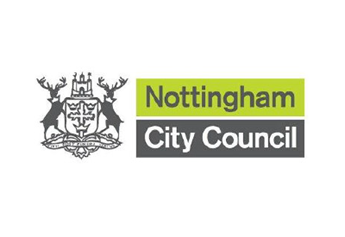Nottingham City Council

Automation transforms planning process to delivering data-driven decisions in Nottingham
Challenge
Data management and publication is critical for all planning authorities, but it is time consuming and can be inefficient and inaccurate without the right processes in place. Nottingham City Council wanted to address – and meet – increased demand for planning data, whilst also tackling capacity and resourcing issues so that it could deliver more by freeing up in-house expertise to focus on value added work.
Solution
In conjunction with IDOX and by using FME Server the data integration ‘glue’, the Council could fully automate and connect their datasets to produce visual reports.
Together with 1Spatial, the Council built an FME process that connects to the Oracle database sitting behind IDOX Uniform Enterprise. The innovation with Uniform Enterprise and the data integration with FME Server are delivering time savings for planning and data specialists, and with the addition of spatial data extraction, planning officers can construct queries and create reports much more quickly, in greater volumes and with greater knowledge of the data.
Benefits
- Realises the DLUHC’s reform of the planning system in England by supporting the planning ecosystem related to applications and decisions.
- Drives added value for users of the planning system.
- Improves data quality, use, availability, & transparency.
- Makes better use of planning data and increases sharing of reusable components and practices.
- Produces tangible products that can be shared with other planning authorities.
- Addresses increased demand for planning data and the issue of capacity, expertise and resources experienced by all local authorities.
Automating and connecting datasets by using FME Server, the data integration ‘glue’
“As a planning authority, we want to improve publication of planning data through enhanced reporting capabilities with data interoperability at the heart of what we do. Our automated approach, enabled by FME, enables us to keep pace with the growing demand for planning information and helps us to derive more value from planning data through efficient and effective publishing and improved reporting. This not only supports digital planning reform but is also essential for statutory reporting and publication of statutory registers.”
GIS Service Manager, Nottingham City Council
Nottingham drives value with open data
Challenge
Freedom of Information (FOI) requests and demands for Open Data were placing a strain on Nottingham City Council.
Solution
By using FME to create scheduled, rules-based automation, the council radically reduced workload while improving performance against government targets for the publication of open data, response to Freedom of Information requests and the standard of local geospatial data.
Benefits
- Production of validated and redacted FOI responses for Council Spend data now takes just one hour per month, with significantly reduced manual input.
- FME has helped the Council meet the requirements of the Local Transparency Code.
- The automatic production of open data sets has driven greater collaboration and insight within the council.
- Open data has also enabled innovation in the broader community. Nottingham’s open data website includes applications developed by citizens and organisations using open data sets.
Automating open data drives efficiency and insight
“The general expertise of 1Spatial has always been top notch,” explains Kamrul. “Whenever we‘ve had a problem, they’ve been really responsive. They’re very dynamic and they feel like part of the team, rather than ‘just another supplier’. There’s a really good bond between the council and 1Spatial”
GIS Data AnalysteNewsletter
Stay up to date with all the latest 1Spatial news and events through our eNewsletter.
Register now

